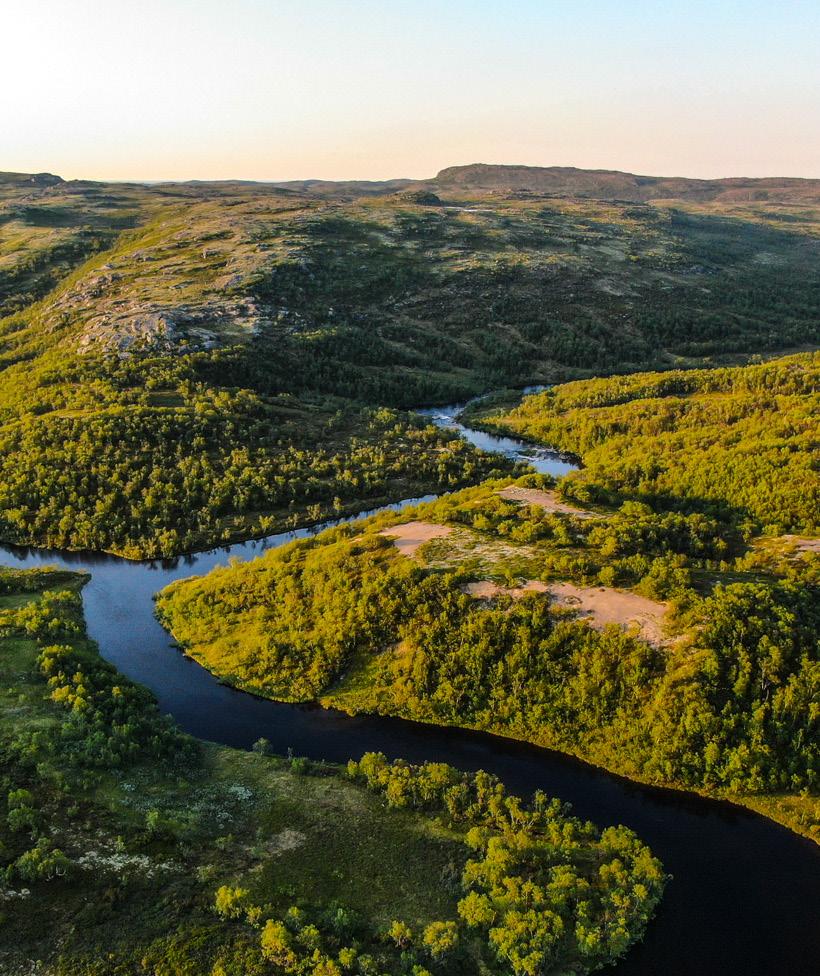
13 minute read
Belousiha: Breaking Lockdown on a Budget
I started WhereWiseMenFish, a small destination travel business over 15 years ago. As much as the memories, tales and videos from the trips I have run the name, WhereWiseMenFish has always raised an eyebrow and sparked numerous comments over the years, 99% of them very positive. The most amusing one was from a very capable Danish fly angler/guide who shall remain anonymous who on hearing about my enterprise said, “Justin, cool name, but can you really name your company ‘Where WHITE Men Fish’. I have laughed about that ever since.
By JUSTIN MAXWELL STUART
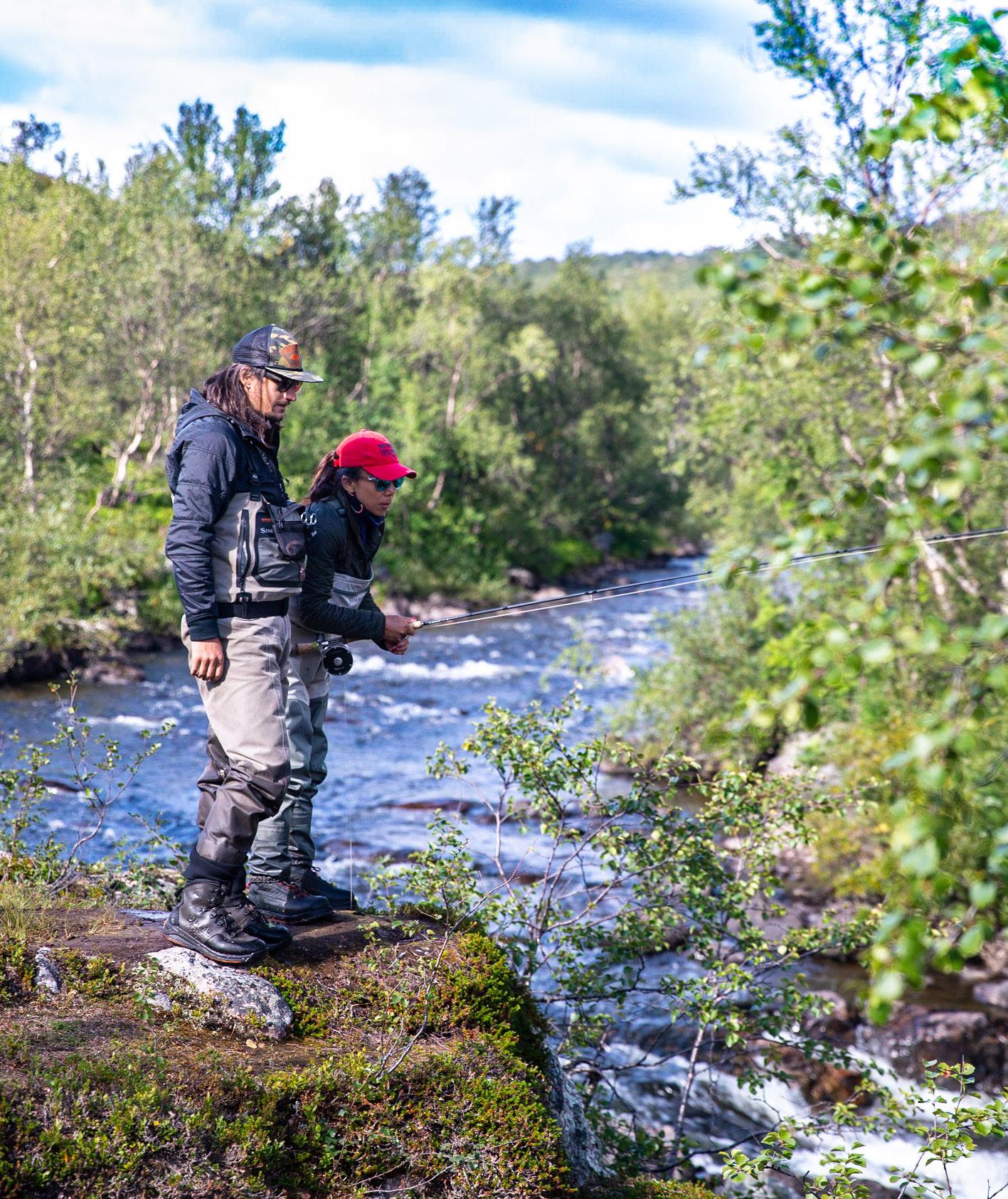
One of the less positive appraisals which tends to pop up on the WhereWiseMenFish-You Tube channel alongside any remotely exotic destination is ‘Where RICH Men Fish’. Social media has its pros and cons and whilst unflattering comments are to be expected in a public forum, they can also be exasperating due to the lack of appraisal as to what is involved in establishing and then maintaining lodges in remote and hard to access locations.
Naturally an organised guided overseas trip is going to cost a lot more than a day ticket to a local river or lake, whether free access or not.
Unrecognised in criticism over cost or restricted access, is the ceaseless ongoing owner investment into not just providing a reasonable level of lodging but more importantly the vital contribution they provide, at a minimum, maintaining the status quo of that specific eco-system, but equally, the effort and resources to bring some rivers back from the brink.

Russia’s Kola Peninsula
To assume that a riparian owner or lease holder simply pockets the dividend is in almost all cases a misnomer. Wealthy people may indeed buy fishing lodges but, as far as I am aware, they are not wealthy on account of them! I have always been interested in seeking out and, where possible, providing support to destinations which are both affordable, have something noteworthy about the fishing and offer an experience a bit beyond what one might find at home. This, then, is the story of the Belousiha and Voronya rivers, approx. 2 ½ drive from Murmansk. Atlantic Salmon fishing, on Russia’s Kola Peninsula, that is affordable on a mediocre budget, on rivers that had been almost completely written off due to damming and subsequent poaching. Anyone who has fished on the Atlantic Salmon Reserve (ASR) or indeed most of the rivers on the Northern Kola coastline will have frequently flown over Tumanny, the ASR logistics helipad at the bumpy end of the most Easterly road that runs from Murmansk.
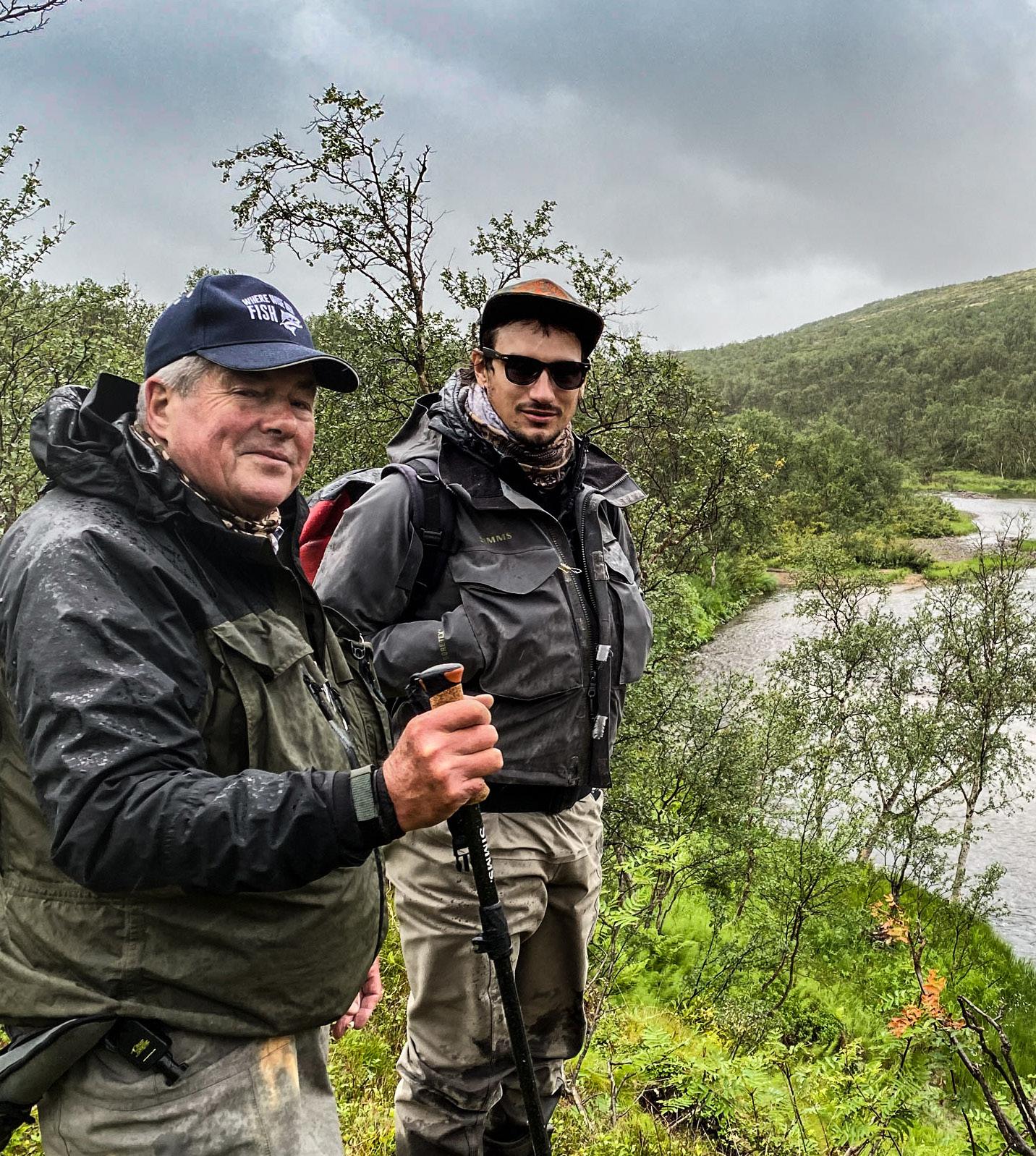
For those who have overflown the area, if you managed to keep your eyes open during the helicopter flight, you would have seen one of two substantial man-made reservoirs complete with two very significant hydro-electric power stations, responsible for much of the power on the Kola Peninsula, and the source of the various pylons that snake along the coastline to secret ‘cold war’ military outposts. Between the two dams runs a ragged boulder-strewn scar, the original footprint of the mighty Voronya river and the home to some of the biggest salmon on the Kola Peninsula. Originally 155Km in length, it was once one of the most powerful rivers on the Kola Peninsula. That chapter in the almanack of salmon fishing almost came to an end with the construction of the dams… almost, but not quite!

Dams and Economic Hardship
The damming of the Voronya immediately cut the migratory route of the salmon. Salmon ladders or a compensatory hatchery were never part of the Soviet plan! Salmon numbers crashed! Those fish that did return were ruthlessly poached. The economic hardship that followed the collapse of the Soviet Union does not allow one to place undue blame on poachers who sought to put food on their table or indeed some profit from their sale.
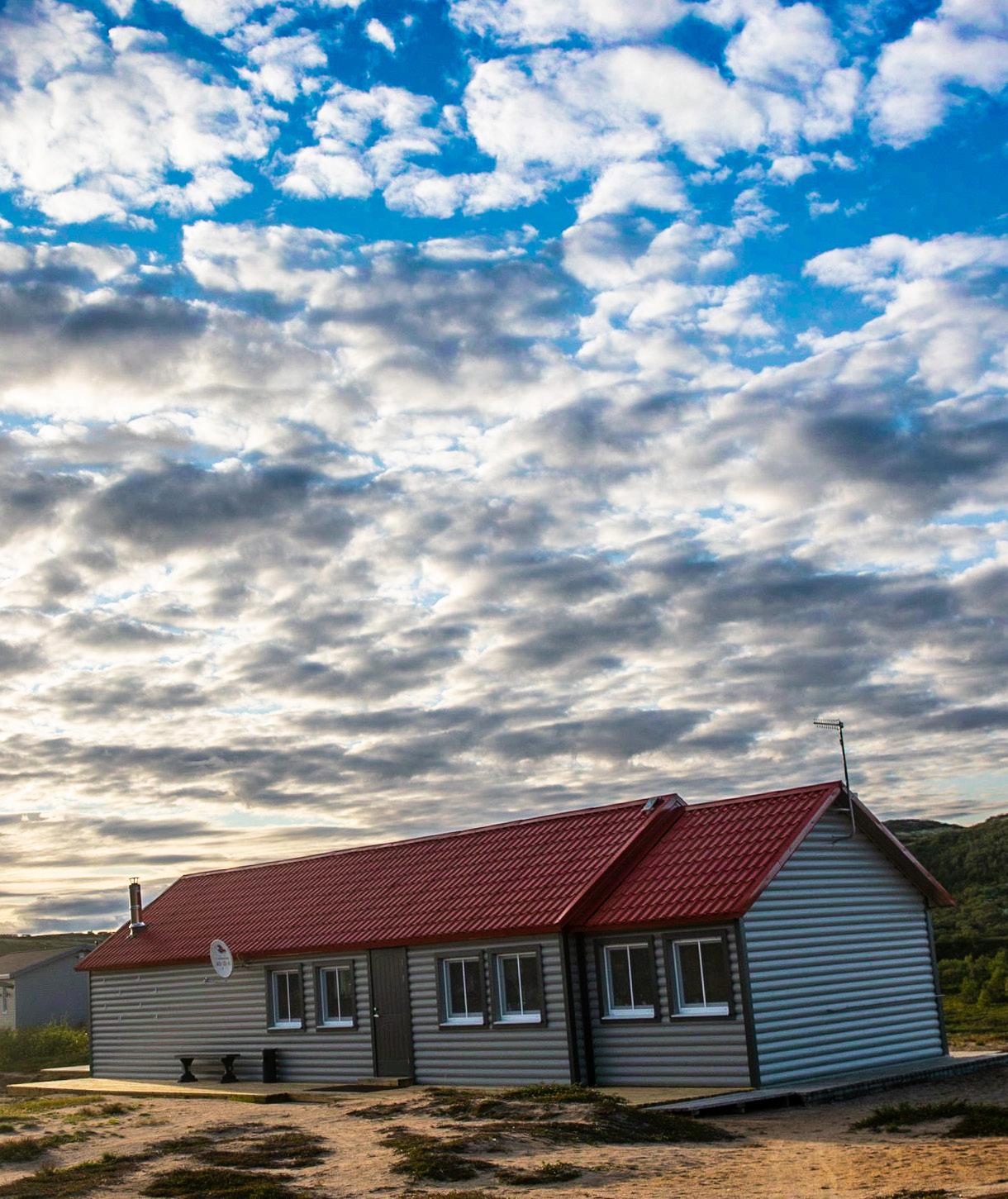
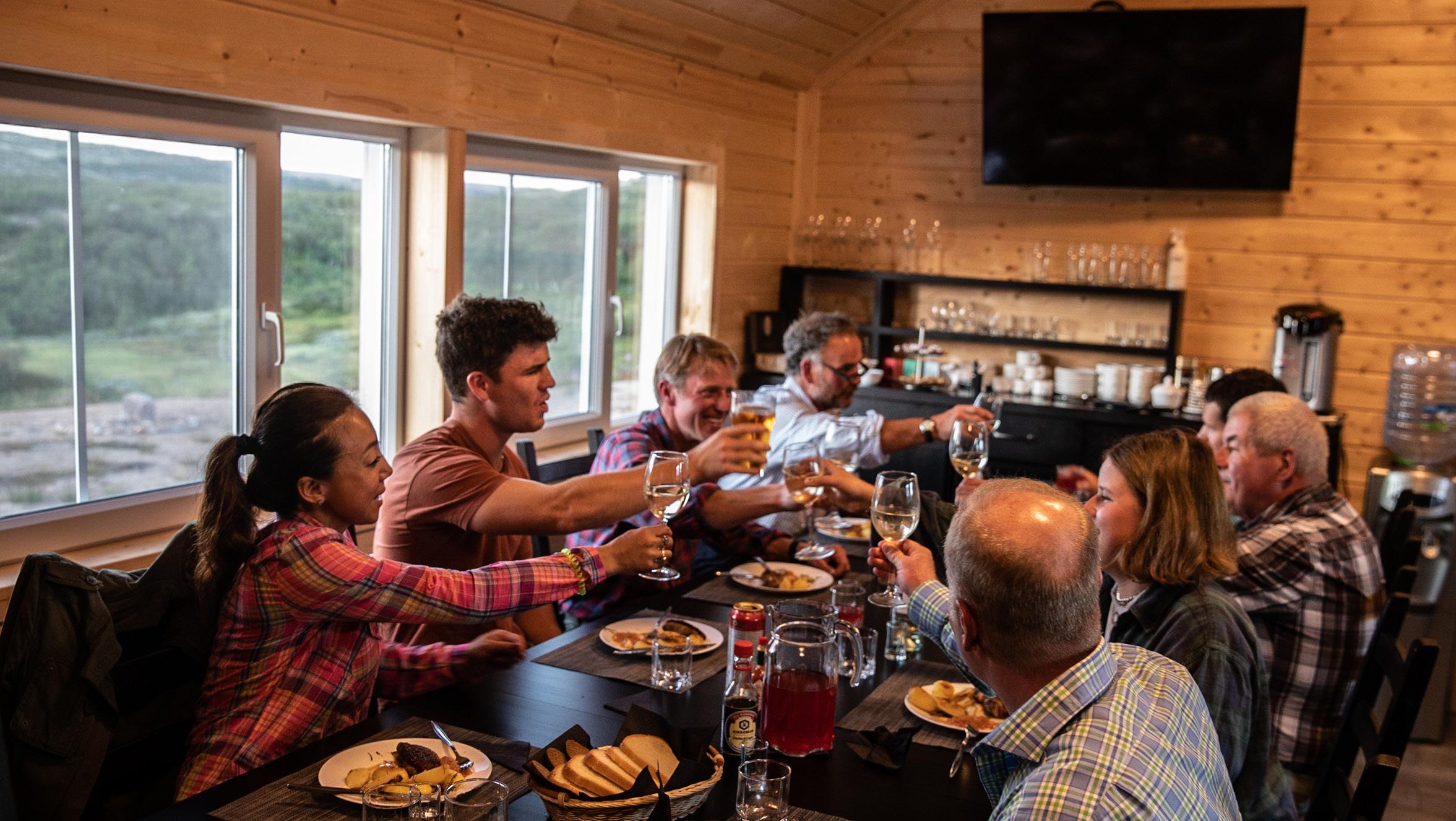
We do not need to look far into our own national history to see similar actions, even if under different circumstances. Regardless of reason or need, numbers plummeted, and it is likely that the only reason a trace of the original run of salmon remains is on account of the sheer power and size of the Voronya River and indeed the tenacity of the Atlantic Salmon.

A pair of keen Russian anglers saw an opportunity, initially to enjoy the fishing amongst friends on the intimate Belousiha, a tiny tributary which joins the Voronya close to its mouth. Driven by the same passion, that is at the heart of almost all owner/operators of remote fishing lodges, emerged a very basic camp, catering for just 4 anglers. Robust anti-poaching controls were put in place to grasp back control of an eco-system which was fighting to survive.
In 2015 they extended the lease to the Voronya, and although the fishable section of the river is only a sliver of its original length, it was established without question that not only did it have a viable run of Salmon, but that they had retained the genetics and with it the size of their forerunners! Two salmon rivers on the brink of oblivion were saved!

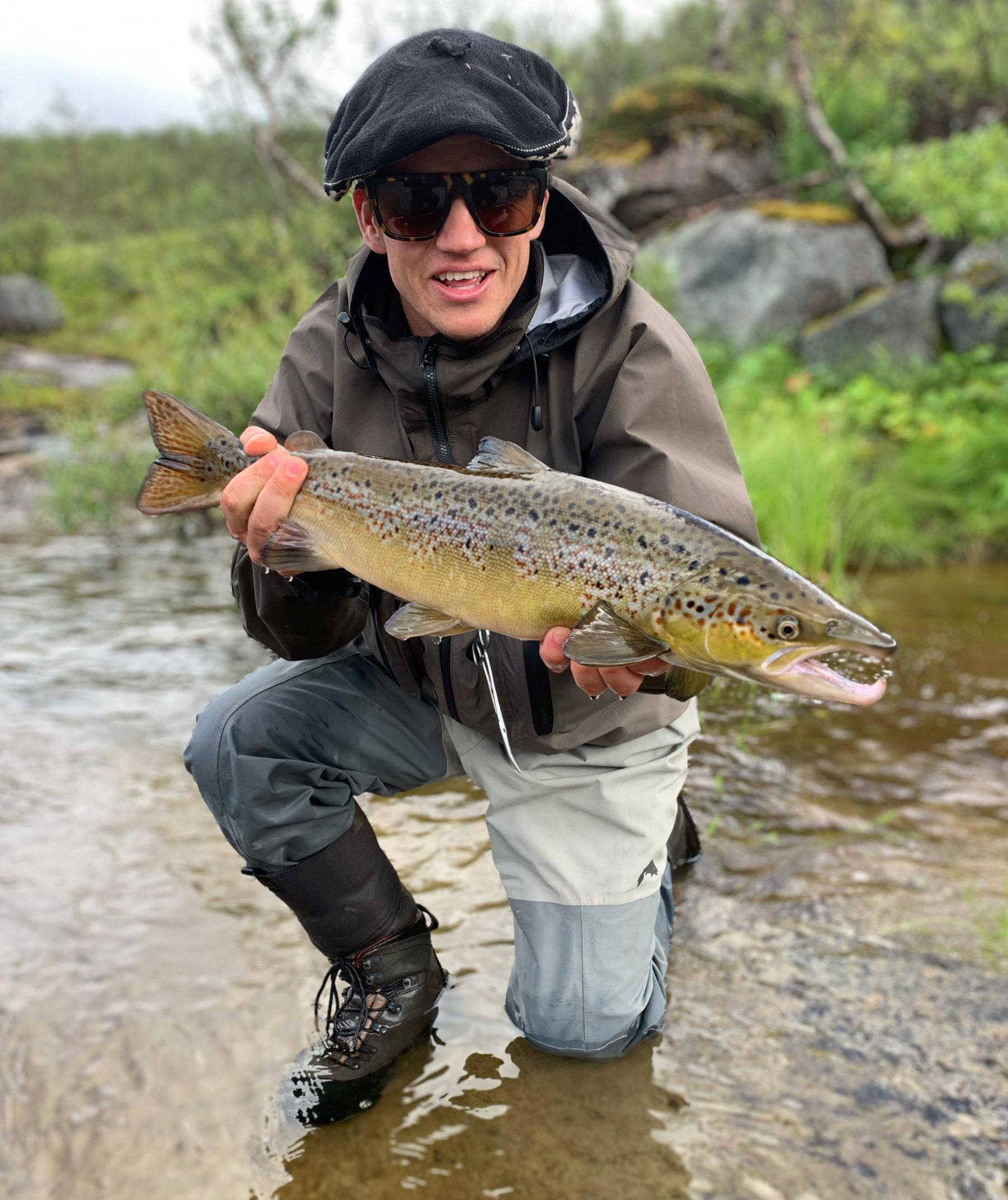
The Summer of 2020
Jump forwards and it is now August 2020. The camp has been expanded and substantially improved but the prime months of the season had passed with no international anglers having had the opportunity to fish at Belousiha, or indeed any of the rivers on the Kola Peninsula. Clearance for foreigners to enter Russia was granted by the Russian authorities on the 31st July and our WhereWiseMenFish team, consisting of an unusually young team, with three under the age of 25, and including two ladies, (another area where WhereWiseMENfish as a name has landed me in trouble, even though it most certainly is not exclusive), scrambled to arrange visas, flights and Covid tests!
It goes without saying that all the stars were never going to align perfectly!
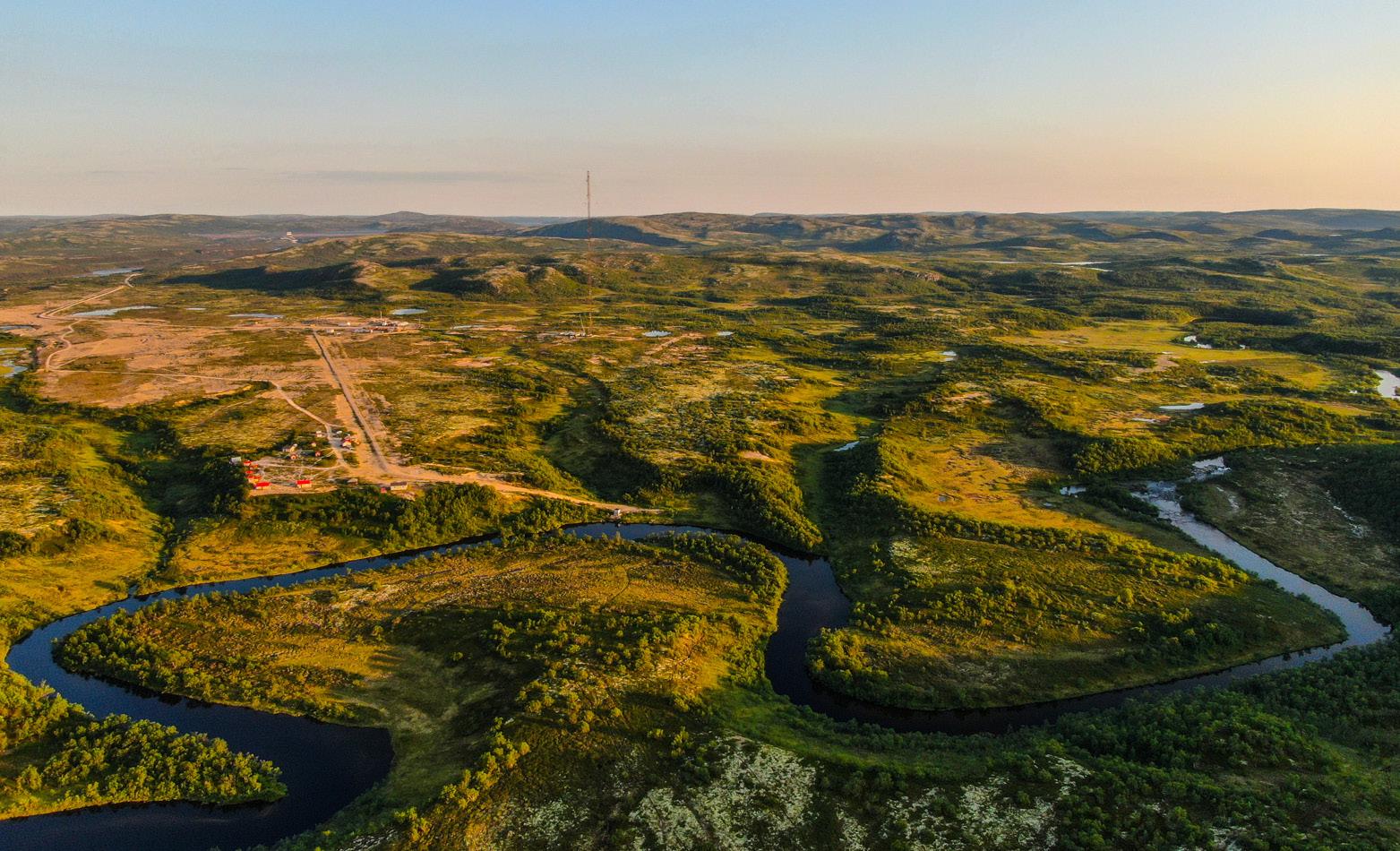

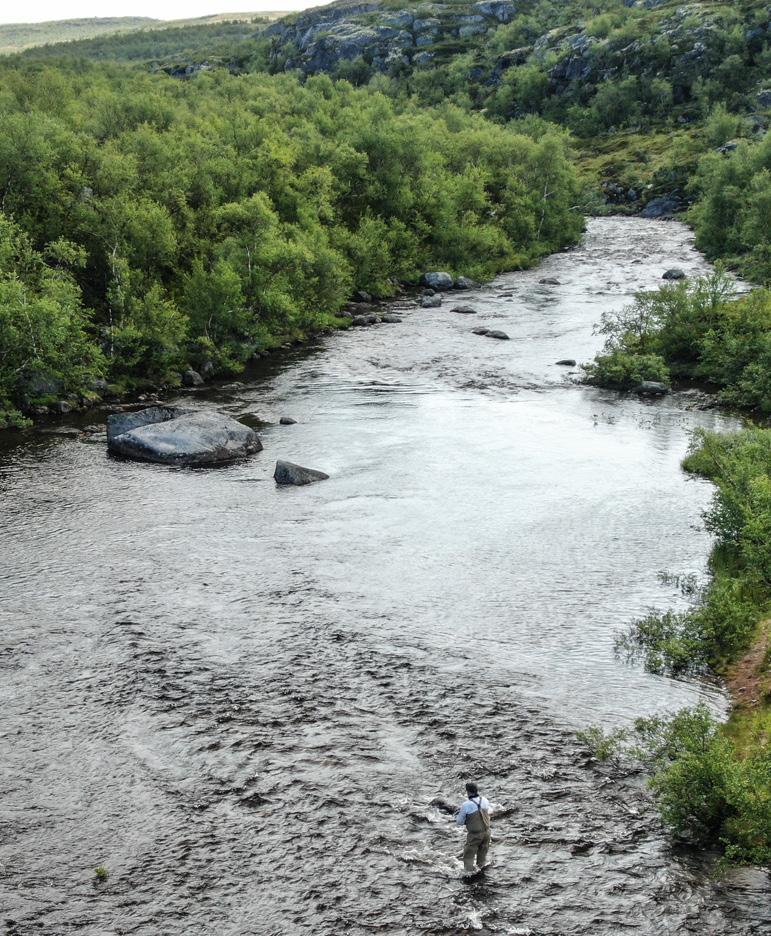
Despite an exceptionally deep winter snowpack across the Kola Peninsula, a warm spring resulted in early season water levels so high that the authorities issued a flood evacuation plan in case the Voronya dams failed. The huge amount of meltwater had meant that the Voronya had been high all season and was only really approaching a normal height from August onwards.

The Belousiha by contrast benefited directly from the early high-water levels, although two months in, and with little more than a few grey clouds all season, it was now very low!
None of the above did anything to subdue the huge amount of excitement that everyone felt, not just to have escaped the tentacles of lockdown, but to be in Russia, in a wild and new environment and with two salmon rivers to conquer. Rain clouds were forecast all week and whilst they did little more than freshen up the rivers, having cloudy skies on the Belousiha in particular made all the difference.
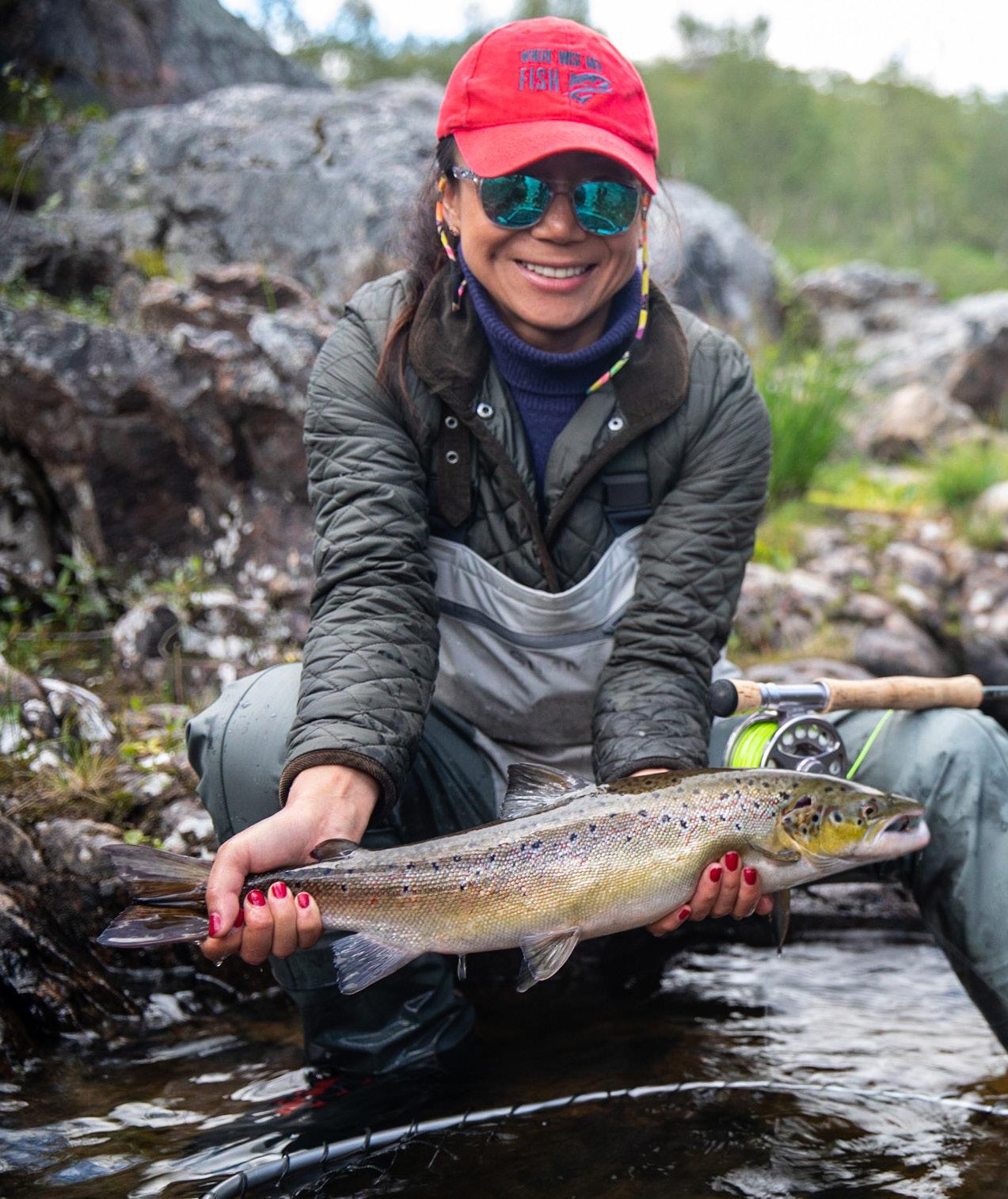
Two Rivers – Tons of Possibilities
When fishing with a full team of 8 rods pairs of anglers are typically split with 3 days on each river. There is however quite often some flexibility, with some being drawn inextricably into the big fish, big rod camp of the Voronya, whilst others, the stealthy Icelandic approach on the Belousiha.
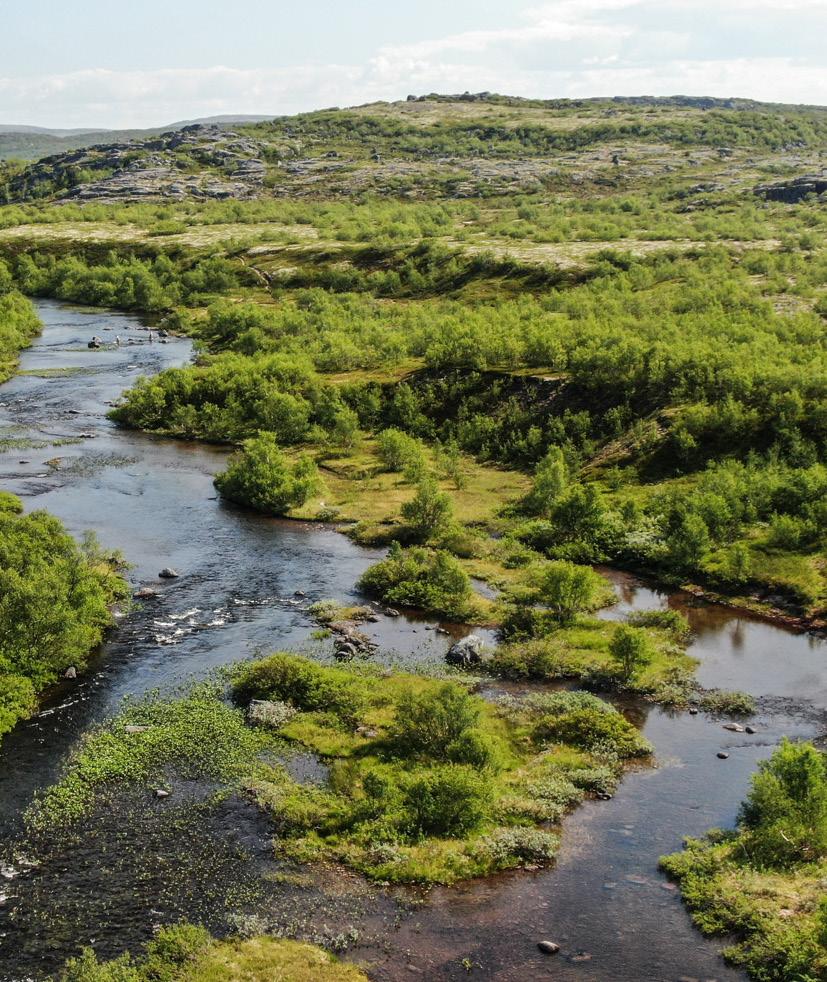
More action is almost always had on the Belousiha, however pictures of huge silver leviathans from the Voronya mean that it is never an easy decision if an option arises! This, it has to be said, is one of the very appealing aspects of this lodge. Having two rivers at your disposal which both require very different styles of fishing. Quite frequently water conditions on the two rivers will be at complete opposites to each other and juggling between more action with a light rod vs the chance of the fabled ‘fish of a lifetime’ can create a level of decision anxiety should you decide to break from the standard rotation.
The Voronya is unquestionably a less forgiving river.
Fish tend not to show all that frequently and its size can be intimidating. The fishing is loosely split into 3 beats with each area having lots of water to cover. A level of mental resilience is required, with a full day encompassing many casts and the potential to come away after 2 or 3 days empty-handed! If that does not sound appealing, then it is also a reality check. Big fish rivers, wherever they are in the world, do not typically give up their treasure without a significant level of perseverance, even when embraced with a much larger budget!

The Voronya
The fishing on the Voronya on the first two days was challenging on account of some consistent rain alongside very cold winds straight from the North pole. It was a good reminder that conditions can change very quickly inside the Arctic circle, even during a summer devoid of rain.
I bitterly regretted having sacrificed a few minimal accessories in my packing, specifically gloves, scarf and a woolly hat, instead opting for additional drone batteries and camera paraphernalia alongside bulky and extensive fly selections for the group.
But the fish were there and with some perseverance and kinder weather, despite the fact that we had all been praying for rain since our arrival, Hugo added an additional 14lbs to his previous personal best (PB) with a 24lb hen on Day 3, whilst Alistair, with ‘a few’ more years of salmon fishing under his belt, also broke his PB, by a smaller margin, with a 26 ½ lb cock fish the following day.
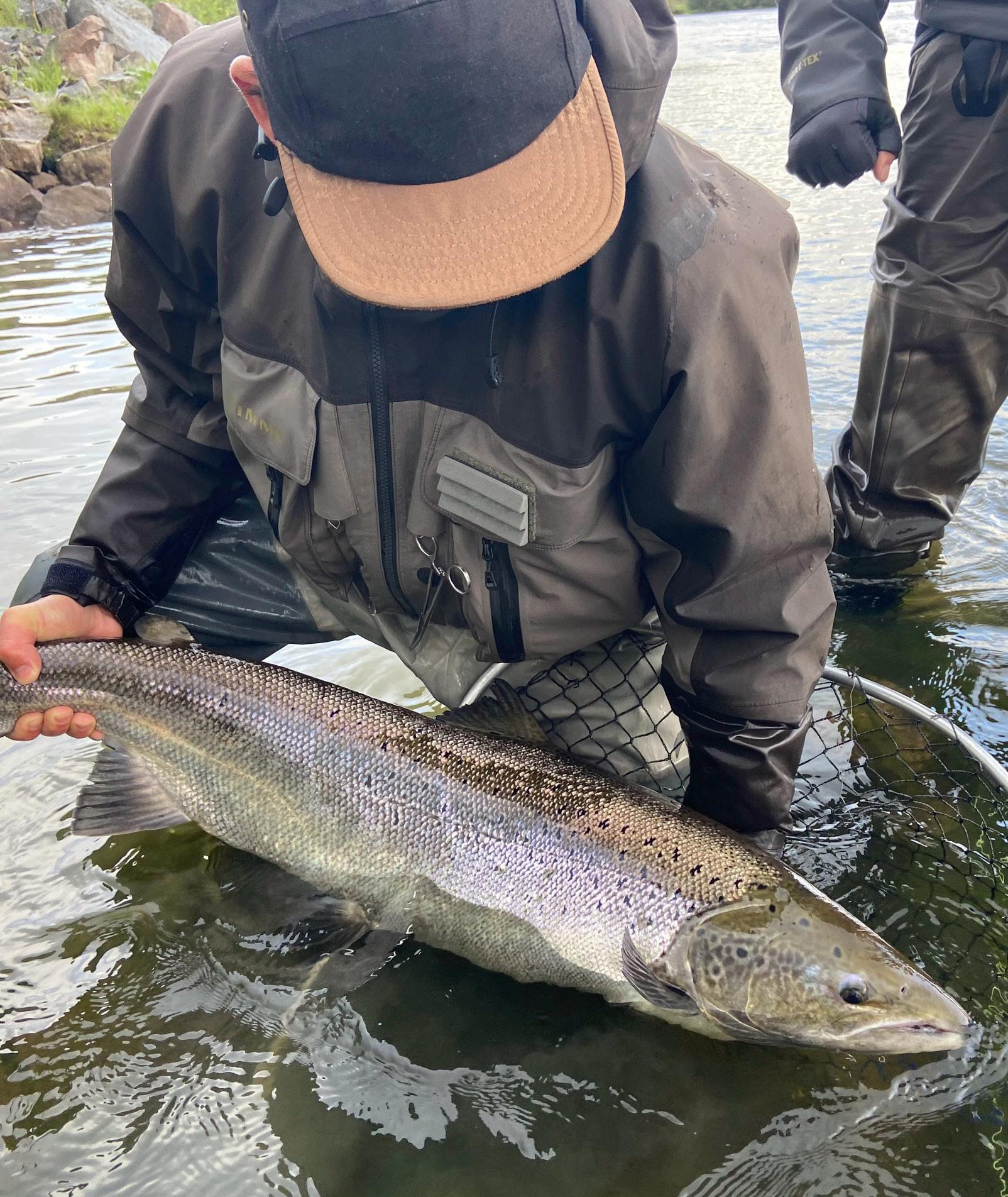
The Belousiha
The Belousiha is the chalk to the Voronyas cheese! Despite very, very low water, almost every pool either offered some action and a chance of a fish or one or more landed over the week. A stealthy, tactical fishing approach is important as was fly selection. Pools that would appear to be totally devoid of fish when fished with one style of fly would come to life with another. We hitched, stripped, floated, sunk and when required, bombed pools with a wonderful arsenal of flies. For a river that would appear to be showing not just its bones but the base of the coffin as well, it produced a heartening amount of activity. The fun and excitement of spotting and then enticing a fish to take, even when not landed, should never be underestimated regardless of the eventual tally.
By way of an indication as to the activity that could be found on the Belousiha, on the final day I opted to switch partners and take some lessons from ‘Big Fish Hugo’. Having walked to the top of the river to the canyon, I tried my luck fishing deep, spurred on by guide Max’s tale of a fish he had spotted that was larger than any salmon he had seen before alongside Alistair’s success the previous evening, where he had hooked 6 or more salmon despite only landing one.
Fishing from the high bank pulling a heavy Francis out of the depths, several fish flashed from the deep to take the fly, although they all turned out to be Trout.
Meanwhile Hugo had set himself adrift in a float tube chasing a number of salmon splashes in the lake below the canyon, although this adventure was quite quickly aborted in mid-lake when he calculated that the tube was losing air at a faster rate than he could paddle back to the bank!! His exertions were not entirely in vain, as he had seen a very large fish within casting reach of the bank, and we proceeded to do our best to bombard it from the shoreline, although sadly without contact.

Watching from Above
We then worked our way down the river, fishing all available pools with 2 decent fish lost and one landed. The landed fish was especially eventful as Max, whilst running to grab the net, managed to wedge his wading boot so firmly between some rocks on the bank that he had to ‘undress’ and net the fish in his bare feet, recovering the boot and waders with considerable difficulty later! After lunch we spent a substantial period of time perched on another cliff top, fishing down into the pool below. I provided surveillance top cover with a drone, hoping to get a ‘fish take’ shot, whilst simultaneously operating camcorder and go pro. Hugo under Max’s close instruction and using the full array of artillery from our combined fly collections set about the task in hand.
Eight or more times salmon flashed from the deep to nibble, nudge or swipe at his fly offerings that ranged from hitched flies, bombers, micro Icelandic patterns, steady favourites, secret weapons and up to 2 inches of copper tube. With each new fly we would get a flash of interest and a communal ‘aaargh…did you see it’ before the pool once again went quiet and we resorted to a new pattern. Zero score to us despite a monumental effort but it would be no exaggeration to say it was a thrilling way to spend a couple of hours. Although by the end of the day we had only landed two salmon, we had enticed, rose or lost at least 8 x that amount.
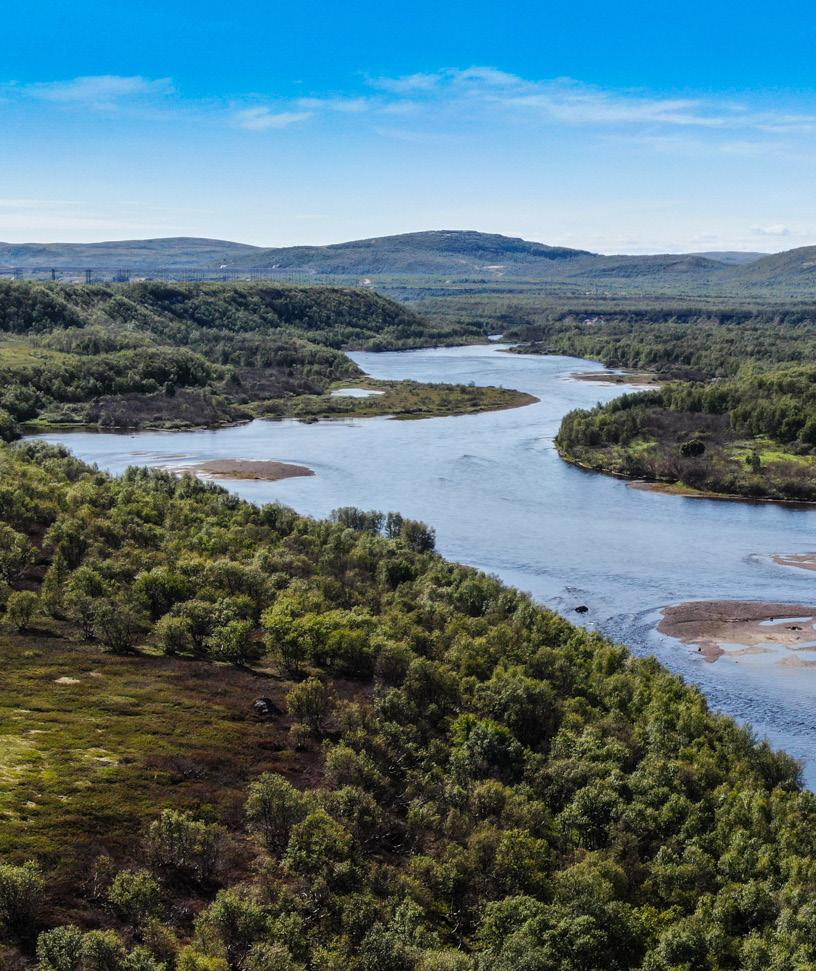
Status after a Week of Fishing
The Belousiha was definitely kinder to our overall catch total for the week, even if the actual fish landed were not large.
The bigger Belousiha fish, as in any salmon river, are typically sullen takers in low-water, so it was no great surprise that we did not come into contact with them. Sam & Hebe were both rewarded with their first salmon with Sam’s father Howard finally achieving his goal in getting Sam his first salmon after many years of trying. Hideko, on only her 2nd ever salmon fishing trip managed a commendable 2 more fish to her tally. Due credit should also be unreservedly passed to John, the older statesman of our party, for not just catching salmon but more importantly embarking on the trip with the resilience of a war veteran, despite the concerns of Covid. In total we landed 32 fish and lost 34 (mainly Alistair ;-)), enjoyed countless toasts amongst ourselves and our Russian hosts, and returned feeling a whole lot better about life and lockdown, all on a relatively meagre budget of €2,500/rod.
Belousiha lodge is certainly ‘new’ to the Russian salmon options available.
It may not have the kudos of some of the more prolific and better-established operations, but it is a very reasonably priced alternative and with sustained good management definitely an option for those on a Wise Men budget.










